There are many ways to generate extra sales during the holiday season. You can launch seasonal products or offer holiday discounts.
Another effective way to boost holiday sales is to focus on cross-selling products to your current and existing customers.
Cross-selling is a digital marketing strategy where businesses recommend related products that complement the customer's initial purchase.
This method can help you increase customer loyalty and average order value, expand product offerings, and even reach new customers.
With the holiday season just around the corner, it’s worth planning early to make the most of this lucrative period.
By effectively implementing these cross-selling techniques, eCommerce businesses can increase sales and boost revenue during the holiday rush.
This article will explore four effective cross-selling eCommerce techniques to help you make the most of the holiday season.
Table of Contents:
- Offer Discounted Add-Ons
- Bundle Complementary Products
- Make Use of Visuals
- Cross-Sell Using Emails
- BONUS TIP: Upsell During Checkout
1. Offer Discounted Add-Ons
A cross-selling eCommerce technique is offering discounted add-ons to customers. The add-ons should be related products or services that complement what the customer is already buying.
Offering add-ons at a discounted price creates an irresistible incentive for customers to add more items to their holiday shopping carts.
For example, if you sell handmade candles, you could offer a discounted bundle of scented candle melts or a decorative candle holder. It encourages customers to buy more and allows you to showcase other products in your inventory.
This section would appear at the bottom of a product page, and you can call it ‘Related products’ or ‘You may also like.’ Here’s an example:
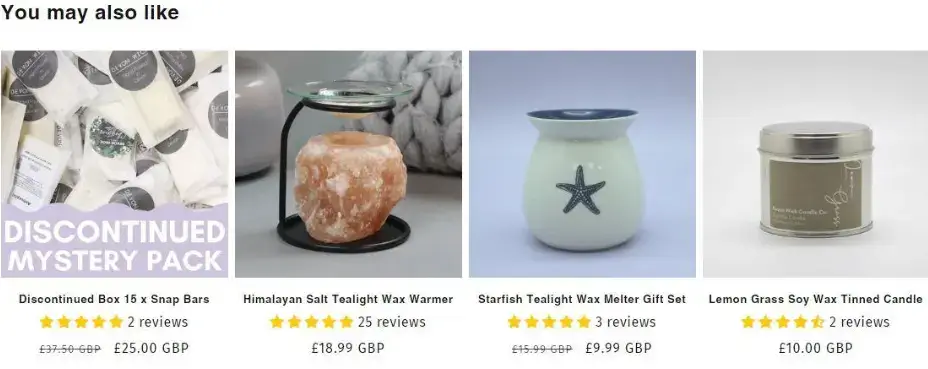
This cross-selling eCommerce technique during the holiday season is particularly effective when the additional purchases are small compared to the original purchase.
A new laptop is quite an investment, so an electronics eCommerce retailer could suggest purchasing an extended warranty to cover the equipment at a discounted price.
By suggesting these additional products, eCommerce businesses can increase the customer's purchase value and encourage them to return for future purchases.
2. Bundle Complementary Products
Another powerful cross-selling eCommerce technique is bundling complementary items together.
By packaging related items as a bundle, you not only increase the average order value but also provide customers with a convenient and cost-effective way to purchase everything they need.
Let's say you run an online store that sells baking supplies. You could create a holiday baking essentials bundle with cookie cutters, festive sprinkles, and baking parchment.
It makes it easier for customers to get everything they need for their holiday baking projects in one go while introducing them to new products they might have yet to consider.
Place a popup to announce your seasonal bundles to ensure your website visitors don’t miss out on them. POWR allows you to build a professional popup for your website with no coding knowledge.
This eCommerce has created a ‘Shop By Occasion’ tab in its website’s menu. Customers can pick everything they need to bake yummy snacks for Halloween, Christmas, and other occasions.
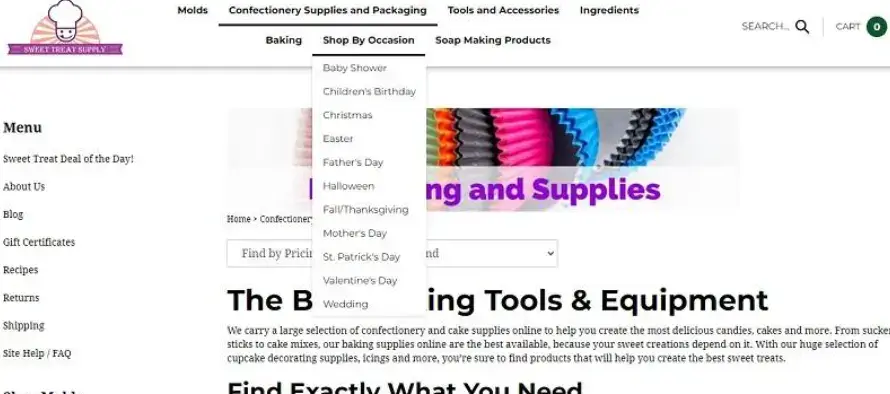
You can offer the bundled items at a discount if all the items are purchased together. This method will make the bundle even more appealing.
You can also use the POWR multimedia slider to display videos and images on your website showing your special offerings.
3. Make Use of Visuals
You can use visuals such as product images, videos, and infographics to capture customers' attention and create a more personalized buying experience, helping to boost sales.
Visuals can also give customers a better understanding of the product and its features. When it comes to cross-selling, incorporating compelling visuals can significantly impact your customers' buying decisions.
A whopping 93% of global eCommerce buyers say that your product's visual appearance is vital for your business's success.
It’s worth knowing this strategy when you’re about to start your business and don’t have an eCommerce website yet. So, when building your site, you’ll know exactly what you need to win potential customers over.
One effective visual technique is to showcase related or complementary products alongside the main item a customer is viewing.
For example, if a customer looks at a cozy sweater, you could display matching accessories like scarves or hats. It gives customers a complete outfit idea and sparks their interest in additional products.
The Pretty Little Thing brand does just that on its website. The brand added the ‘Shop The Look’ tab where shoppers can view and add to their cart complete look items.
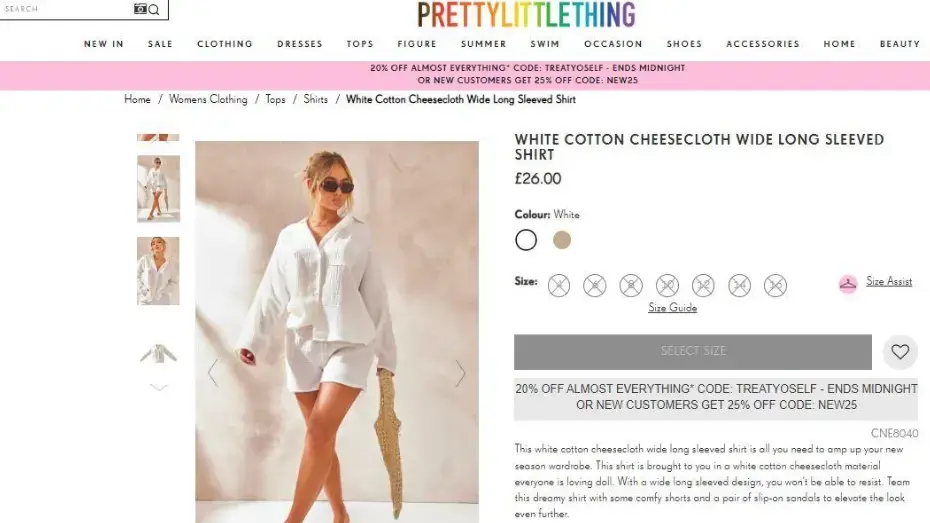

The brand also corporates with other directories that help to reach a greater target audience on social media:

It is also where optimizing content can prove highly effective. By optimizing user-generated content (UGC) shared by your customers, you can maximize its impact on your brand’s visibility and sales.
People are more likely to buy a product if they see other customers complementing it via photos and videos.
Encourage customers to share photos or videos of themselves using your products on social media. Tell customers to tag you, create a specific hashtag, and tell your fans to use it.
This way, you can find and leverage UGC through your business channels. Below, you can see all the #looksbyluks pictures posted by Looks for Luks brand’s fans on Instagram.
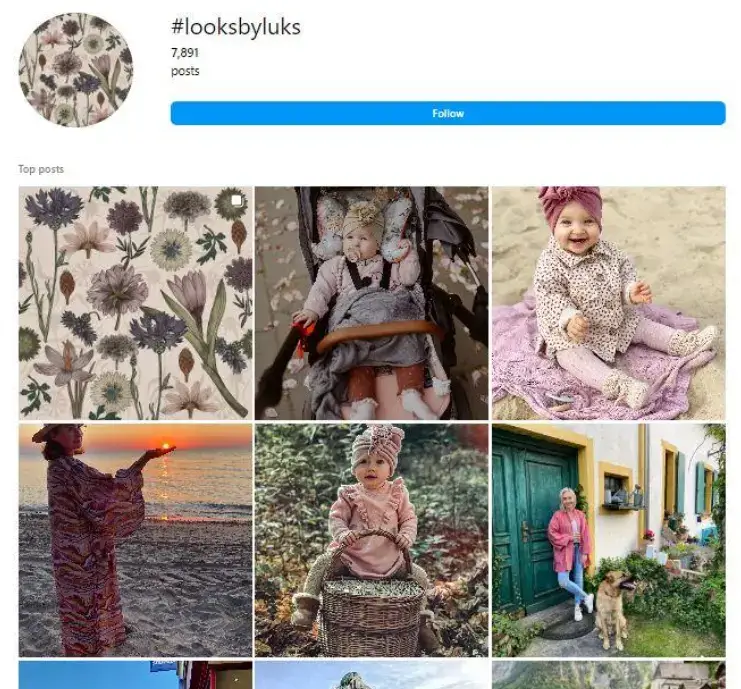
By optimizing this process, you ensure that the UGC aligns with your brand's aesthetic and messaging, enhancing its effectiveness.
Social proof can be a powerful tool to showcase how well your products work together and encourage others to make similar purchases.
You can get more likes and followers by placing a social media feed on your eCommerce website.
POWR’s free plugin gets your social media content in front of your site visitors with a live stream from Instagram, Facebook, Twitter, Pinterest, YouTube, and more.
4. Cross-Sell Using Emails
While you may already be sending promotional emails to your customer base, leveraging the power of cross-selling within these communications is essential.
Including relevant cross-sell holiday suggestions in your emails, and newsletters can help you get the most out of your existing customer relationships and drive additional holiday sales.
By sending out cross-sell emails, businesses can showcase products and services that customers may have yet to be aware of. It helps boost sales by targeting customers who may already be interested in their products.
When crafting your emails, consider segmenting your customer list based on people’s past purchases or browsing behavior.
It allows you to tailor your cross-sell recommendations to each customer's interests and preferences.
For example, if a customer recently purchased a yoga mat, you could include cross-selling suggestions for yoga blocks, straps, or instructional videos.
Here’s an example cross-sell email recommending items based on a user’s purchase history.
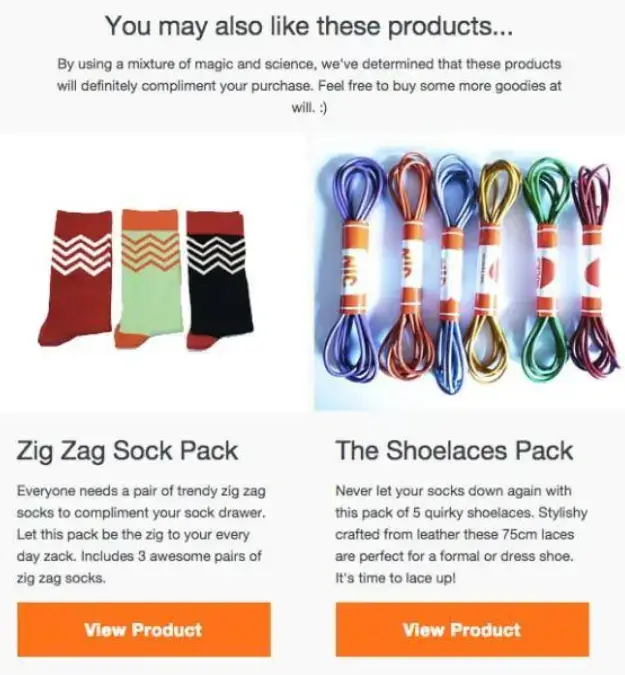
Cross-sell emails and newsletters are a great way to keep your email list subscribers up-to-date about upcoming holiday sales and discounts, thus enticing them to purchase more.
Ensure you have the proper email addresses on your mailing list before hitting the “send” button. Use email tools not just to find email addresses but also to verify these.
You want to make sure your cross-sell emails reach your intended recipients in the first place.
Using these techniques, eCommerce businesses can increase their sales and revenue during the holiday season.
BONUS TIP: Upsell During Checkout
Checkout is a critical moment in the customer journey and presents a prime opportunity to boost holiday sales.
At this stage, you’ll want to suggest relevant upgrades to products about to be purchased to increase the overall value of the transaction. So, you’re not cross-selling here but upselling.
For instance, if a customer is purchasing a camera, you can offer them an upsell option for a camera with a higher-quality lens.
Here’s another tip: Offer free shipping on orders over a specific amount. It offers free shipping on orders $35+. Shoppers can see how much more they need to qualify for this offer.
Since they find they’re just a few dollars away from qualifying, the chances of upgrading the product increase.
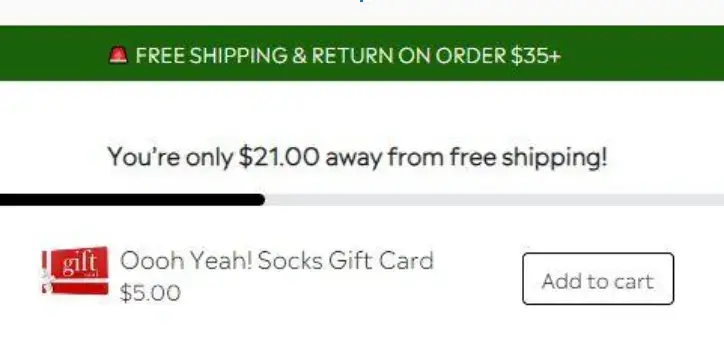
Remember to keep the upsell offer relevant to the customer's intended purchase. Don't offer them shoes if they are about to buy a blanket. Otherwise, they might need to buy something.
In Closing
As the holiday season approaches, it's crucial to have effective strategies in place to boost your sales.
Cross-selling can increase customer loyalty and average order value, expand product offerings and reach new customers.
Implementing cross-selling eCommerce techniques, like offering discounted add-ons and bundling complementary products, can significantly improve your holiday sales.
Incorporate cross-sell suggestions in your emails and newsletters to foster customer loyalty and satisfaction and increase your revenue.
Provide your target audience with stunning and relevant visuals to enhance their shopping experience.
As a bonus tip, to increase your holiday sales, upsell during checkout. Start implementing these effective techniques today and watch your holiday sales soar. Happy selling!
Author Bio
Austin Andrukaitis
Entrepreneur Leadership Network Writer
Austin Andrukaitis is the CEO of ChamberofCommerce.com. He's an experienced digital marketing strategist with many years of experience creating successful online campaigns.
Austin's approach to developing, optimizing, and delivering web-based technologies has helped businesses achieve higher profit, enhance productivity, and position organizations for accelerated sustained growth.




